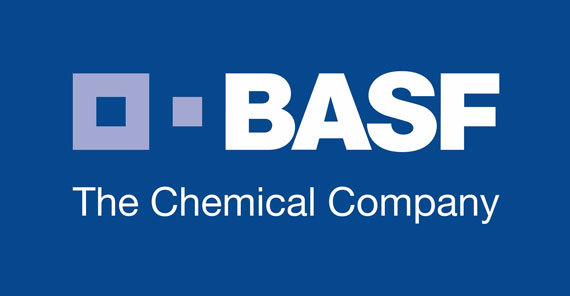More news
- Nigeria’s paint industry navigates regulatory changes and economic challenges amid p...
- Focus on the global coatings market: Global coatings market outlook
- Ask Joe Powder – October 2024
- Chinese paint majors look to domestic consumer sales as commercial real estate slumps
- Architectural coatings in Nepal and Bhutan

- White is still the no 1 global colour
- Blue is the most popular chromatic colour worldwide
- Effect coatings create more diverse choices and raise popularity of achromatic colours
With the "BASF Color Report for Automotive OEM Coatings”, BASF’s Coatings division provides a global analysis of the colour distribution in the 2018 automotive market. The achromatic colours – white, black, gray and silver – still dominate the roads. They cover almost 80% of cars produced worldwide. White is the most popular colour among them. More than every fourth car in North America and nearly every third vehicle in Europe is painted white, while in Asia Pacific it is more than every second car. Silver’s popularity decreased slightly in comparison to the previous year.
Among the diverse range of colour shades, blue is the most popular, followed by red. These chromatic colours tend to be more popular within the smaller vehicle segments, such as compact and subcompact cars. The overall amount of chromatic hues drops off significantly in the larger segments. Here, there was a considerable increase in black and white compared to the previous year.
Effects create new colour variations in Europe
Nearly every fifth car in Europe is painted gray. The colour replaced black as the second most popular colour. Buyers can choose from more than 110 variations ranging from light gray to dark metallic anthracites. Blue offers even more options. Approximately 140 shades make blue the region’s most diverse colour space. With a share of 11%, it overtook silver in 2018, becoming the fourth most desired colour in Europe.
A metallic or pearlescent effect also significantly contributes to the unique look of a car. In 2018, two thirds of all vehicles were finished with an effect coating. The larger the car, the more likely it was painted with an effect. Dark colours, such as black and gray, are mostly formulated to have a metallic effect, whereby lighter colours are primarily solid shades. "The landscape of automotive coatings effects evolves continuously and is shaped by new and inspiring ideas,” said Mark Gutjahr, head of Automotive Color Design Europe at BASF’s Coatings division.
White is most popular in Asia Pacific but chromatic colours gain importance
White is more popular in Asia Pacific than in any other region. 53% of all new cars are white. The colour’s popularity grew significantly in comparison to the previous year. Among chromatic colours, red is still the most popular choice. Blue, however, is closing the gap. An interesting observation is that brown remains especially popular with SUVs but has shown signs of slowing down, indicating that its importance in this segment may have passed.
Car buyers in Asia Pacific are increasingly connecting their colour preferences to their attitudes and lifestyles. For example, metallic and sparkling blacks have risen in demand across several body segments. Even in subcompact cars, silvers and grays with dazzling effects are becoming more common. This can be seen in the Chinese market, where a broader palette of colours has emerged. "The diversity of chromatic colours is evident, with red, blue, yellow, brown and gold hues appearing in almost every segment. Chinese consumers readily display their colouristic tastes more so than in the past”, said Chiharu Matsuhara, head of Automotive Color Design Asia Pacific.
Diversity in today’s achromatic colours in North America offers a look into the future
In 2018, the achromatics remained the most popular automotive colours for North America, accounting for roughly 75% of market production. Among the achromatic colours, white maintains its leading position. Besides the achromatic shades, consumers continued to demonstrate a growing affinity for red, specifically within the pickup and sports car segments. The diverse blue colour space remained nearly the same compared to the prior year.
Over the last 10 years, Crossover Utility Vehicles (CUV) have emerged as a dominant vehicle segment in North America. CUVs combine the qualities of Sport Utility Vehicles (SUVs), like safety and driving convenience, with other benefits, such as fuel efficiency and therefore offer appealing features to a wide array of drivers. White is the most popular colour in this segment, followed by black and gray. Blues and reds are almost equally desired by car buyers. "In coating large surfaces for the CUV segment, the industry looks to bring a suitable visual expression of the vehicle’s perceived use and link it to the brand image,” said Paul Czornij, head of Automotive Color Design for BASF North America.
Trend competence and innovative colour concepts
BASF’s Coatings division has an excellent understanding of what is trending in materials and colours, and uses this to predict which colours will play a key role in the future automotive market. Every year, the Coatings division’s designers create Automotive Color Trends, an innovative collection of 65 new colours based on extensive research and in-depth analysis of global trends and cultural shifts that will influence automotive colours three to five years into the future.
Colour and Sustainability
Integrated into its colour design innovations, BASF offers a range of sustainable coatings solutions for the automotive industry. Among these are coatings that enable a shortened application and curing process, which can reduce CO2 emissions by up to 20%, waterborne basecoats that meet strict global regulations to minimise the volatile organic compound (VOC) content, and coatings with a temperature management functionality whereby the car surface does not heat up as much as conventional coatings, minimising the heat build-up in interiors.



